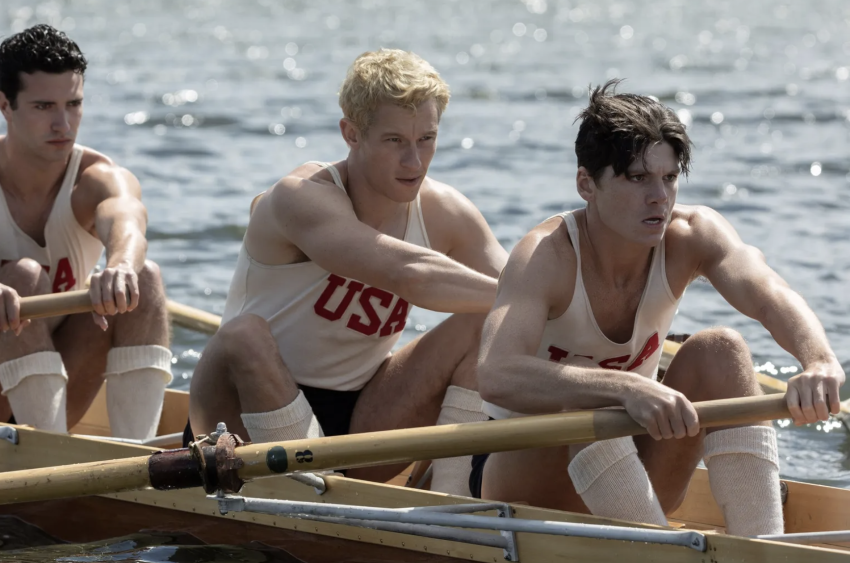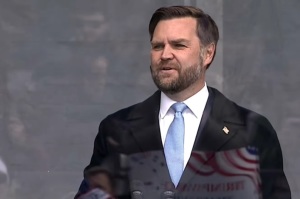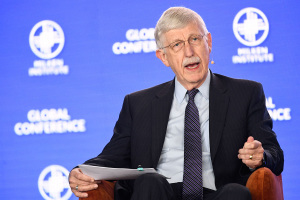George Clooney on the true story behind 'The Boys in the Boat': 'It's about people coming together'

When George Clooney first read Daniel James Brown's TheBoys in the Boat, the remarkable true story of the University of Washington's eight-oared crew team and their quest for gold at the 1936 Berlin Olympics, he was struck by how the unity and collective effort of underprivileged young men allowed them to triumph over adversity.
"I'm from Kentucky; my parents still live there," the 62-year-old Academy Award-winning actor told The Christian Post.
"I think that we've all been beating each other up a lot for the last few years. I go home to visit my friends from Kentucky, who probably don't vote the same, and we all really like each other, and we all get along, we all root for one another. I think we forget that sometimes, and we lose sight of it."
Clooney is the director behind "The Boys in the Boat" film adaptation of the 2013 book, hitting screens this Christmas and starring Callum Turner, Joel Edgerton, Jack Mulhern and Hadley Robinson.
Set in Seattle, Washington, against the harsh backdrop of the Great Depression and the looming shadow of World War II, "Boys in the Boat" follows protagonist Joe Rantz's journey from a challenging childhood to an Olympic gold medalist.
Strapped for cash, Rantz, who has been on his own since he was 14, tries out for the college rowing team at the University of Washington alongside similar young men — sons of loggers, shipyard workers and farmers. The group of scrappy young men, under the guidance of their coach, Al Ulbrickson, learn to set aside their individual differences and work in unison. It's through pure grit and determination that the team goes all the way to the Olympics — the 1936 Games in Nazi Berlin presided over by Adolf Hitler.
For Clooney, Rantz's story was especially compelling and a testament to the power of sheer will in the face of poverty. The film delves into the heartbreaking backstories of its characters during the Great Depression and the personal and economic hardships they faced — something Clooney said he didn't want to sugarcoat.
"I was a tobacco farmer. I cut tobacco for a living for $3 an hour," he recalled. "When I moved to California, I didn't have a car, and I didn't have insurance for 10 years. And I understood the idea of living, no check to no check mostly, and trying to live on the floor of a closet for five years and relying on the kindness of my friends, and sometimes my family."
"It's a funny thing because things have worked out for me later in life," he continued. "I've done Q and A's, and somebody says, 'Well, what do you know about this?' And I go, 'You don't get to start the clock on me when it all worked out.' You don't forget what it's like to parse out how you're going to pay for food, what you can afford and what you can't afford. You watch [Joel] go to the soup line, and he ends up not getting it because he sees a kid there that would recognize him. And so I absolutely related to that as a human being."
The real-life Rantz, who died in 2007, earned a chemical engineering degree from the university and worked for Boeing following his retirement from rowing. The film shows in detail how he was forced to overcome his propensity for intense individualism — largely due to the encouragement of his love interest, Joyce — to synchronize with his eight teammates and find success.
Turner, who plays Rantz, reflected on the athlete's troubled upbringing and how being a part of a team and the physical demands of rowing ultimately transformed him.
"There's no star players. ... It's about surrendering yourself to the boat," he said.
"It's a miracle that he even found himself in college," Turner reflected. "It was just that pain was something that I tried to channel. It's interesting; he was in survival mode for so long that he just put up the walls, closed the blinds, locked the door, and he wouldn't let anyone in. And I just thought that was such a fascinating place to be as an actor, in that stillness and that grounded feeling. He was a lumberjack, and in the summer holidays, he would cut trees. He even worked on Hoover Dam when it was being built."
"This guy's a really physical man, and he and Joyce and that love story that they have — and it's a true love story — it's one we all want. It's the one that we aspire to have. It was the thing that opened him up again and reminded him how to breathe."
"The Boys in the Boat" also highlights the power of mentorship. Coach Ulbrickson, along with British boat builder George Pocock, advocates for the team and instills the belief that they can achieve success despite their circumstances. Through these two men, the team learns about humility, sacrifice and the importance of striving towards a common goal.
"There's something amazing about adversity that brings people together. We see it in times of natural disasters. Oftentimes, the people that have the least give the most, and it's such an inspiring thing to say," Edgerton told CP. "It's funny how some people with incredible wealth or an abundance of things lose touch with a sense of community. Underdog stories really resonate with human beings. I think we all feel like underdogs in our own personal thoughts. I just love stories where people are willing to reach out a hand and help each other. It says so much about our core values as humans."
During the holiday season, Clooney said he hopes "The Boys in the Boat" serves as an uplifting yet poignant reminder about the incredible depth of human endurance and the power of teamwork.
"This is a story about people coming together. You can't do it on your own. You have to do it together. I felt like I needed it. We felt like it was a good time around Christmas to remind ourselves that, in general, we're really better together. I liked that theme."
"All of these guys went on to do some really unique and beautiful things," he said. "They all became something pretty special."
Leah M. Klett is a reporter for The Christian Post. She can be reached at: leah.klett@christianpost.com



























